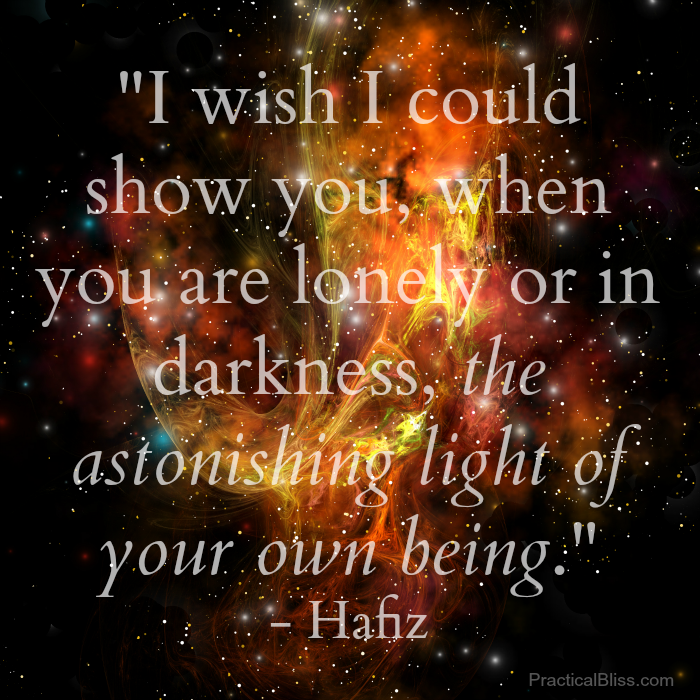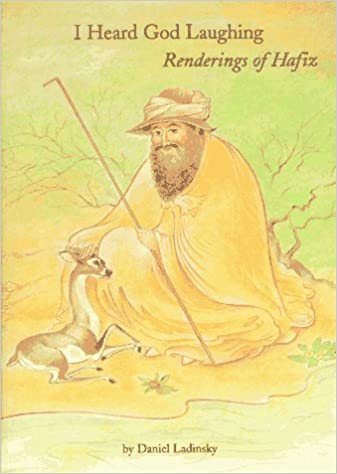A thread on why 99.9% of Hafez quotes on the internet are… fake. Including the ones you probably like. A thread on #Hafiz #Hafez, or I should say #FakeHafez.
(Including the one here, which is alas, Fake!)
(Including the one here, which is alas, Fake!)
“Even after all this time, the sun never says to the earth, ‘you owe me.’ Look what happens with a love like that! It lights up the whole sky.”
You like that one from Hafez?
Too bad. It’s Fake Hafez.
Fake.
You like that one from Hafez?
Too bad. It’s Fake Hafez.
Fake.
“Your Heart and My Heart Are Very Very Old Friends.”
Like that one from Hafez too?
Too bad.
Also Fake Hafez.
Like that one from Hafez too?
Too bad.
Also Fake Hafez.
And the next one you were gonna ask about? Also fake.
So where do all these fake Hafez quotes come from? Brace yourself.
They are not from Hafez, but an American poet Daniel Ladinsky who publishes poetry that he attributes to Hafez without *any* reference to the original. None.
So where do all these fake Hafez quotes come from? Brace yourself.
They are not from Hafez, but an American poet Daniel Ladinsky who publishes poetry that he attributes to Hafez without *any* reference to the original. None.
It hurts me to say this, because I know so many people love the “Hafiz” translations that are published under Daniel Ladinsky& #39;s name. They are beautiful poetry in English, and do contain some profound wisdom. But, and it is a big but and I can not lie....
Daniel Ladinsky& #39;s translations have no. earthly. connection. to what the historical Hafiz of Shiraz, the Persian sage, ever said. He is making it up. He admitted that they are not "translations", or "accurate", or any knowledge of Persian in his 1996 book "I heard God laughing."
Ladinsky actually states that Hafez appeared to him in a dream and handed him the ENGLISH “translations” he’s publishing.
I mean who are we to argue with people’s dreams, but I am fairly certain that this is not how translation works.
I mean who are we to argue with people’s dreams, but I am fairly certain that this is not how translation works.
There’s a pretty rigorous critique of Ladinsky here
http://home.jps.net/~nada/hafiz.htm ">https://home.jps.net/~nada/haf... by Murat Nemet-Nejat, and another one by Christopher Shackle: #cite_note-23">https://en.wikipedia.org/wiki/Daniel_Ladinsky #cite_note-23">https://en.wikipedia.org/wiki/Dani...
http://home.jps.net/~nada/hafiz.htm ">https://home.jps.net/~nada/haf... by Murat Nemet-Nejat, and another one by Christopher Shackle: #cite_note-23">https://en.wikipedia.org/wiki/Daniel_Ladinsky #cite_note-23">https://en.wikipedia.org/wiki/Dani...
I want to give credit where credit is due: I do like Ladinsky’s poetry. And they do contain mystical insights. They are just not…Hafez. They are… Hafez-ish? Hafez-esque? What it’s not is anything the 14th century poet, the earthly historical Hafez of Shiraz said.
So many of us wish that Ladinsky had just published his work under his work name, rather than appropriating Hafez’s.
Ladinsky’s “translations” have been passed on by Oprah, Elif Shafak, and others. It’s now part of the spiritual wisdom of the East shared in the Western circles. Which is great for Ladinsky, but we are missing the chance to hear from the actual, real Hafez. And that is a shame.
There is a huge difference between the violence Ladinsky inflicts on Hafez and Coleman Barks’ treatment of Rumi. Ladinsky’s poems, while beautiful in and by themselves, are entirely unrelated in any discernible way to the poetry of Hafez.
Coleman Barks is working with literal Victorian translations done by Nicholson and Arberry, & rendering them (beautifully, it should be said) in American free verse while minimizing the Islamic references. Barks also has his own Sufi connection through the late Bawa Muhaiyaddeen.
Barks is clearly within a wider tradition of translation (broadly understood). With Ladinsky, we are in a different realm: appropriation, commodification, and erasure. Which is really a shame, because some of his poems are actually beautiful. It’s just not…Hafez.
If you enjoy these types of threads, feel free to join us on https://illuminatedcourses.com"> https://illuminatedcourses.com . Our current course is on Mawlana #Rumi& #39;s "Heart of Rumi& #39;s Poetry."
https://www.illuminatedcourses.com/theheartofrumispoetry
Join">https://www.illuminatedcourses.com/thehearto... us anytime!
Subsequent online courses will be on the Qur’an, and who knows, maybe one on Hafez!
https://www.illuminatedcourses.com/theheartofrumispoetry
Join">https://www.illuminatedcourses.com/thehearto... us anytime!
Subsequent online courses will be on the Qur’an, and who knows, maybe one on Hafez!
Oh and one more thing: It’s Haaaaafez, not Hafeeeeez. Please. It hurts my heart to hear "Hafeeeeez." Hafiz or Hafez are both fine in English. But the "A" is a long vowel. You& #39;re welcome.

 Read on Twitter
Read on Twitter









